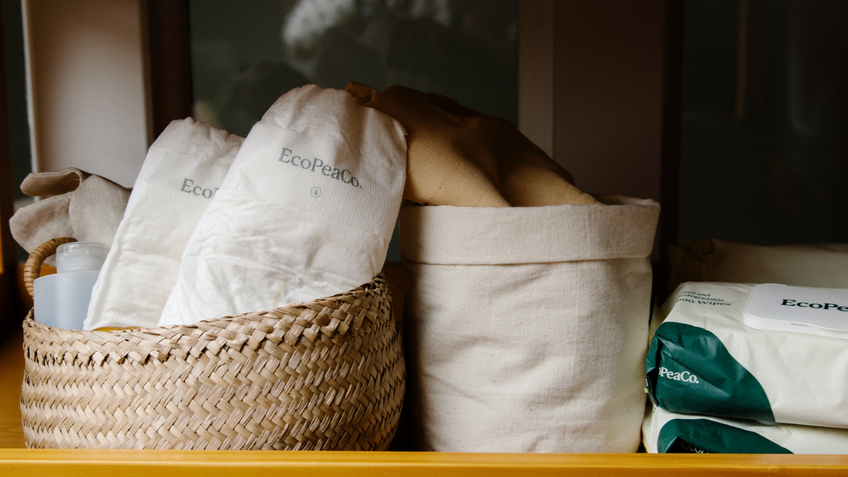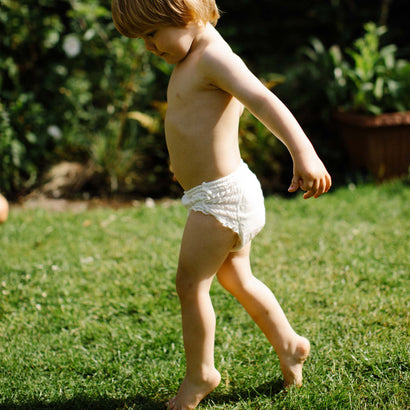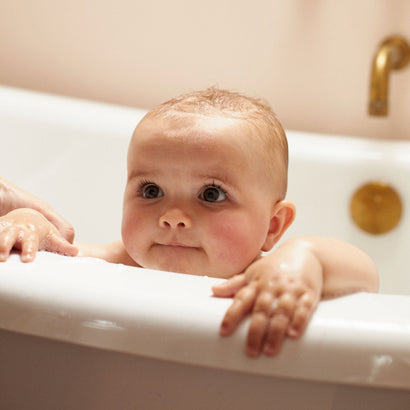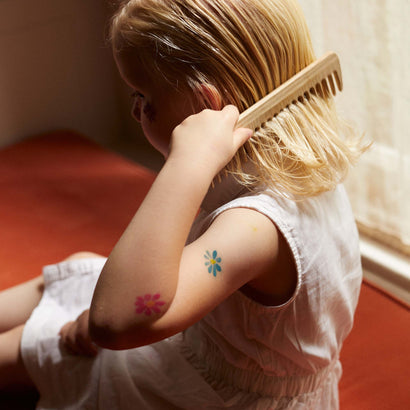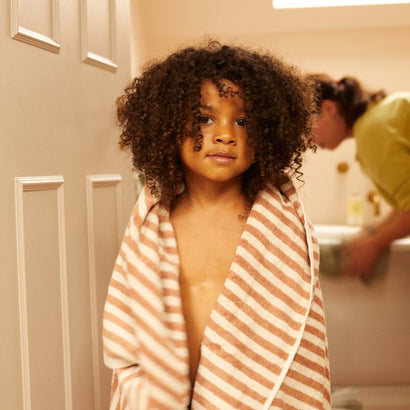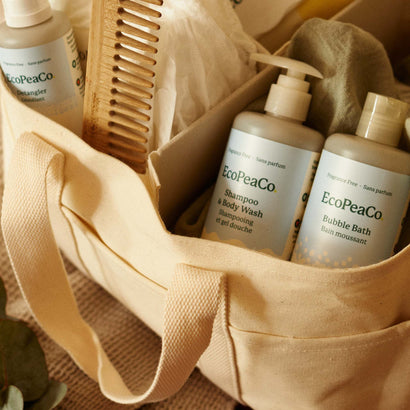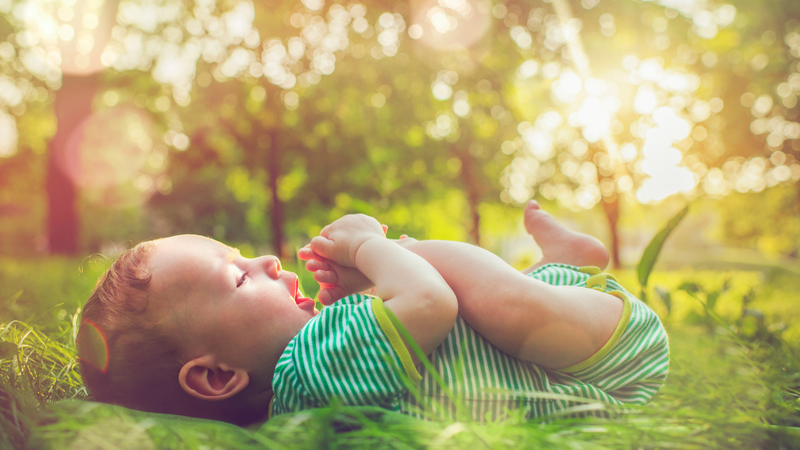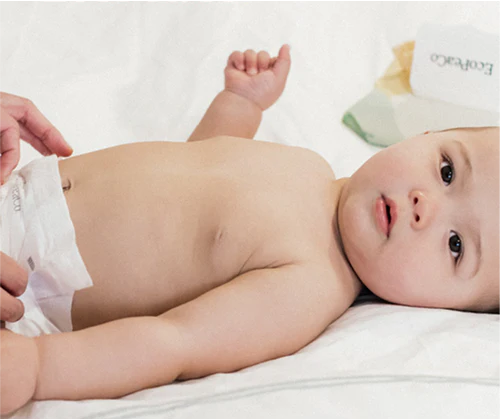Are diapers biodegradable?
As your baby will likely go through thousands of diapers in the first year of their life alone, it’s important to consider how all those diapers could impact the environment and your child.
Most disposable diapers are not biodegradable leading many to think that the only eco-friendly diapering option is cloth diapers. That’s not necessarily true. There are disposable diaper brands, like Eco Pea Co., that provide a product that has the least amount of negative environmental impact as possible.

Biodegradable diaper material
A prime benefit of bamboo diapers is that they’re biodegradable, meaning they’ll break down and be reabsorbed by the Earth in a relatively short period of time.
In addition to being biodegradable, plant-based diapers made of bamboo are also:
- Incredibly absorbent: Bamboo wicks moisture away from the skin, keeping baby drier and minimizing the chance of them developing a diaper rash. This feature is enhanced by the breathability of bamboo.
- Made of renewable eco-conscious resource: Bamboo is truly amazing in that it can grow up to four feet in one day and is always being replenished. In addition, most bamboo species can mature in as little as three to six years.
- Growing bamboo isn’t harmful to the environment: It doesn’t require pesticides or herbicides, needs small amounts of water, doesn’t call for irrigation, and doesn’t have to be replanted, since it regenerates from its roots. In addition, it helps Earth’s atmosphere by absorbing carbon dioxide and releasing 35% more oxygen than trees of the same size.
How long do diapers take to decompose?
Babies will use 3000 diapers during their first year of life, leading to diapers being the third largest single consumer item that ends up in landfills. This is because most disposable diapers take around 500 years to decompose. Eco Pea Co.’s bamboo diapers biodegrade just 2 - 3 months after disposal.

Are diapers recyclable
Diapers are not recyclable, and most non-compostable diapers need to be disposed of in the trash. This is because many diapers contain different materials such as paper, plastic and absorbent material they are also contaminated with human waste, which deems them not eligible for recycling but diapers from brands like Eco Pea Co. are compostable.
Can you compost diapers?
Most disposable diapers are not biodegradable and are therefore not compostable.
Eco Pea Co.’s disposable, biodegradable diapers and biodegradable wipes are composable in favourable conditions and come in 100% compostable paper packaging. To top it off, our shipping process is carbon neutral! We recommend disposing of Eco Pea Co. diapers by sending them to a diaper composting facility rather than composting them yourself, as there could be harmful bacteria present and our wipes can be disposed of the same way.

Cloth diapers vs Biodegradable
When you hear the term “bamboo diapers,” you might envision stiff, uncomfortable material. Luckily, that's a far cry from the reality of most bamboo diapers. Bamboo diapers can offer a range of benefits that can seriously enhance your diapering endeavors, and is very different from cotton in many ways.
Here are a few features of bamboo vs cotton cloth diapers to consider:
- Moisture Wicking. Bamboo wicks moisture away from the skin, keeping baby drier, and minimizing the chance of them developing a diaper rash. This feature is enhanced by the breathability of bamboo. Cotton cloth diapers need to be changed more often, as they don’t wick moisture away as well.
- Leaner fit. If you’re sitting there searching, "how are bamboo diapers made,” know that they don’t require as many layers of material as cotton diapers, meaning they’re less bulky and more comfortable. Nice.
- Properties. Bamboo can help repel microbes, unlike cotton. Although it shouldn't be considered fully antibacterial, it can help cut down on the growth of bacteria and other microorganisms in the diaper. Diapers made of bamboo are hypoallergenic and can repel mold, mildew, and dust. This reduces your baby’s chance of developing an allergic reaction to diapers.
Sources:
https://realdiapers.org/diaper-facts/
https://www.experiencedmommy.com/how-long-does-it-take-for-diapers-to-decompose/
